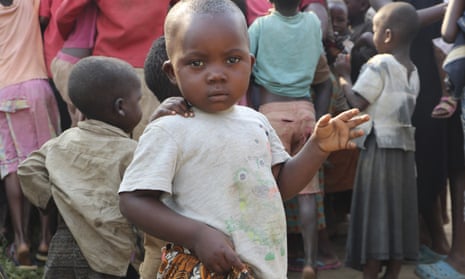A serious outbreak of malaria in Burundi has reached epidemic proportions, killing almost as many people as the Ebola crisis in the nearby Democratic Republic of the Congo.
The outbreak in the tiny Great Lakes country has infected almost half the total population, killing about 1,800 people since the beginning of the year.
According to figures gathered by the World Health Organisation, almost 6 million cases have been recorded since the first week of January to the end of July, with infections reaching crisis levels in May.
The figures look on course to outstrip the epidemic of 2017, when more 6 million cases were recorded for the whole year.
The situation has continued to worsen as the government of Burundi has refused to declare an emergency.
The scale of the outbreak was described in the latest report for the UN’s office for the Coordination of Humanitarian Affairs, which warned that the outbreak had reached “epidemic” proportions.
“The national malaria outbreak response plan, which is currently being validated, has highlighted a lack of human, logistical and financial resources for effective response,” reported the organisation.
The organisation and other experts have blamed a number of issues for the crisis, including low use of preventative measures and a vulnerable population with low levels of resistance. Experts have also noted an increase in drug resistant strains of the disease in common with other parts of the world.
The climate crisis has been cited as a contributing factor. Mosquitoes, which spread the disease, are reaching higher altitudes in the mountainous country, and have displayed behavioural changes including more aggressive feeding habits.
The country’s agricultural policies have also encouraged an increase in rice production that has seen farmers encroach on mosquito-infested areas.
While Burundi has long struggled with malaria, the figures for the current outbreak suggest a 50% increase compared to the equivalent period last year.
The UN organisation noted bleakly that the number of health districts that have passed the epidemic threshold had continued to increase.
Although Burundi declared a national health emergency in 2017 after 1.8 million cases and 700 deaths were recorded, it has declined to declare one for the current outbreak, apparently concerned of the potential impact ahead of elections slated for next year.
“We are less than a year away from the presidential election,” one anonymous official told the AFP news agency. “[President Pierre] Nkurunziza, who is facing many crises, does not want to recognise what could be considered a failure of his health policy,” the official said.
The country has been in the throes of a crisis since 2015 when Nkurunziza ran for a third term and was re-elected, while the majority of the opposition boycotted the polls.
At least 1,000 people were killed and more than 400,000 displaced in violence the UN says was mostly carried out by state security forces.










